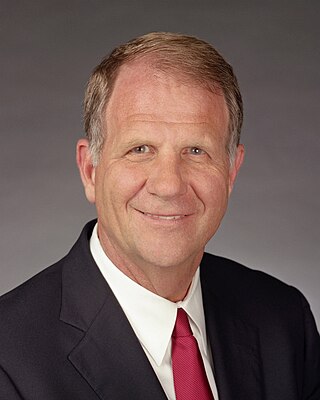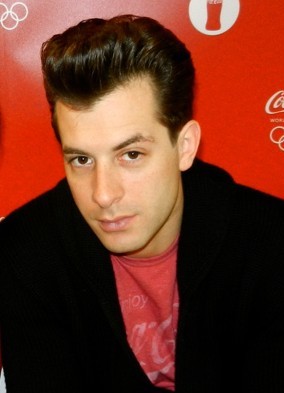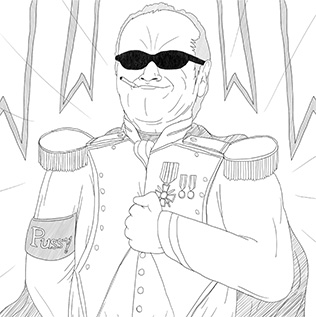
Monica Samille Lewinsky is an American activist. Lewinsky became internationally known in the late 1990s after U.S. President Bill Clinton admitted to having had an affair with her during her days as a White House intern between 1995 and 1997. The affair and its repercussions became known as the Clinton–Lewinsky scandal.

Public humiliation or public shaming is a form of punishment whose main feature is dishonoring or disgracing a person, usually an offender or a prisoner, especially in a public place. It was regularly used as a form of judicially sanctioned punishment in previous centuries, and is still practiced by different means in the modern era.

Jon Ronson is a British journalist, author, and filmmaker. He is known for works such as Them: Adventures with Extremists (2001), The Men Who Stare at Goats (2004), and The Psychopath Test (2011).

Lloyd Theodore Poe is an American politician who represented Texas's 2nd congressional district in the United States House of Representatives from 2005 to 2019. Poe was the first Republican to represent the 2nd district.

Mark Daniel Ronson is an English and American DJ, record producer and remixer. He has won eight Grammy Awards, including Producer of the Year for Amy Winehouse's album Back to Black (2006), as well as two for Record of the Year with her 2006 single "Rehab" and his own 2014 single "Uptown Funk". He has also won an Academy Award for Best Original Song, a Golden Globe and a Grammy Award for co-writing "Shallow" for the film A Star Is Born (2018). Ronson served as lead and executive producer for the soundtrack to the 2023 fantasy comedy film Barbie, on which he also composed and co-wrote several of its songs with his production partner Andrew Wyatt. The soundtrack won three Grammy Awards—"What Was I Made For?" won Song of the Year and Best Song Written for Visual Media, while the parent album won Best Compilation Soundtrack for Visual Media—from 11 nominations, as well as an Academy Award for Best Original Song from two nominations.

Matthew Christopher Miller, better known as Matthew Mercer, is an American actor and game designer. He has provided voice work for cartoons, animations, video games, and English dubs of anime.

Jonah Richard Lehrer is an American author and blogger. Lehrer studied neuroscience at Columbia University and was a Rhodes Scholar. Thereafter, he built a media career that integrated science and humanities content to address broad aspects of human behaviour. Between 2007 and 2012 Lehrer published three non-fiction books that became best-sellers, and also wrote regularly for The New Yorker and Wired.com.
Tablet is a conservative online magazine focused on Jewish news and culture. The magazine was founded in 2009 and is supported by the Nextbook foundation. Its editor-in-chief is Alana Newhouse.
Michael Christopher Moynihan is an American journalist, former National Correspondent for Vice News and co-host of The Fifth Column podcast. He was previously the cultural news editor for The Daily Beast, the managing editor of Vice magazine, and a senior editor of the libertarian magazine Reason. Moynihan was also a resident fellow of the free-market think tank Timbro in Sweden, where he lived and wrote articles about politics in the country, contributing to Swedish-language publications, including Expressen, Aftonbladet, Sveriges Television, Neo and Göteborgs-Tidningen. According to Media Bistro, "Moynihan is perhaps best known for breaking the story on Jonah Lehrer's fabrications."

Nate Diana "Indy" Stevenson, known professionally as ND Stevenson, is an American cartoonist and animation producer. He is the creator, showrunner, and executive producer of the animated television series She-Ra and the Princesses of Power, which ran from 2018 to 2020. He is also known for the science fantasy graphic novel Nimona, as co-writer of the comic series Lumberjanes, and The Fire Never Goes Out, his autobiographical collection.

Philip Michael Lester is an English YouTuber and radio host. He is best known for his YouTube channels AmazingPhil, which as of August 2024 has 3.87 million subscribers, and DanAndPhilGAMES, which has 2.89 million subscribers. Together with frequent collaborator Daniel Howell, he presented the Sunday night entertainment show Dan and Phil on BBC Radio 1 from January 2013 until August 2014, and from September 2014 to April 2016 the duo were monthly hosts on the station's The Internet Takeover slot.
Online shaming is a form of public shaming in which targets are publicly humiliated on the internet, via social media platforms, or more localized media. As online shaming frequently involves exposing private information on the Internet, the ethics of public humiliation has been a source of debate over Internet privacy and media ethics. Online shaming takes many forms, including call-outs, cancellation, doxing, negative reviews, and revenge porn.

iii is the third studio album by Swedish indie pop band Miike Snow. It was released in the United States on 4 March 2016.

Franchesca Leigh Ramsey, also known as Chescaleigh, is an American comedian, activist, television and YouTube personality, and actress, who has appeared on MTV and MSNBC. She gained media fame quickly after her YouTube commentary on racial issues went viral, and she built a career as a writer, producer, and performer based on her unintended activism, being thrust into a role as an advisor or coach on social issues.

Jonathan Aryan Jafari, better known online as JonTron, is an American YouTuber. He created the eponymous YouTube web series JonTron, where he reviews and parodies video games, films and other media.
Sam Faulkner Biddle is an American technology journalist. He is a reporter for The Intercept, and was formerly a senior writer at Gawker, the editor of the news website Valleywag, and a reporter at Gizmodo.

@dril is a pseudonymous Twitter user best known for his idiosyncratic style of absurdist humor and non-sequiturs. The account and the character associated with the tweets are all commonly referred to as dril or wint, both rendered lowercase but often capitalized by others. Since his first tweet in 2008, dril has become a popular and influential Twitter user with more than 1.8 million followers.

Mercedes Grabowski, known professionally as August Ames, was a Canadian pornographic actress. She appeared in more than 100 films, including a non-pornographic film in 2016, and was nominated for several AVN Awards. With a self-disclosed history of sexual abuse and mental illness, Ames died by suicide in 2017 at the age of 23 after a social media backlash following a tweet she posted, due to some perceiving the tweet as homophobic. Her death led to considerable industry attention, as discussion circulated as to the degree of the influence of cancel culture.

Jonah Scott is an American voice actor. He is known for his roles in Beastars as Legoshi, Akudama Drive as Courier, High-Rise Invasion as Sniper Mask, Dying Light 2 Stay Human as Aiden Caldwell, and SK8 the Infinity as Joe.
Donglegate was an online shaming incident. A double entendre on the word "dongle" was overheard at a Python Conference (PyCon) programmers' convention on March 17, 2013, which led to two people being fired and a denial-of-service attack.
















